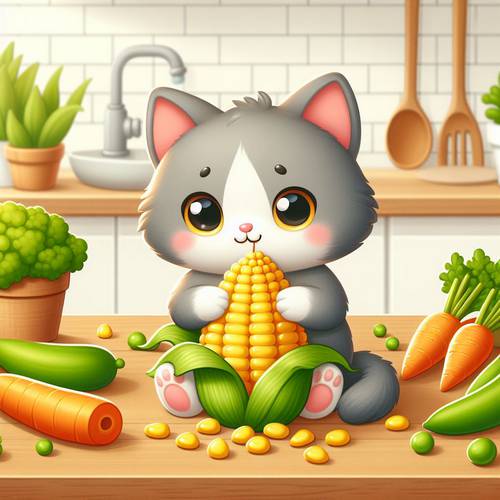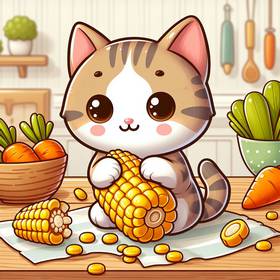Corn is a common ingredient in many cat foods, but its safety for cats is a topic of debate among pet owners and veterinarians. While corn itself isn't toxic to cats, some cats may have difficulty digesting it due to their digestive systems being primarily designed for a meat-based diet. Corn lacks essential nutrients that cats need for optimal health, and excessive consumption can lead to digestive issues like vomiting or diarrhea. It's crucial to consult with your veterinarian about your cat's dietary needs and consider alternatives like protein-rich foods that better align with their nutritional requirements.
Understanding a Cat's Digestive System
Cat's digestive system is crucial for their overall health. Cats are obligate carnivores, meaning they primarily thrive on a diet rich in animal-based proteins. Their digestive tract is designed to efficiently process meat, with a shorter digestive transit time compared to omnivores. However, cats lack certain enzymes to break down plant matter like cellulose found in grains like corn. Feeding cats inappropriate foods can lead to digestive issues such as vomiting or diarrhea. It's important to provide cats with a balanced diet that meets their nutritional needs, including essential amino acids like taurine, crucial for their digestive health.



